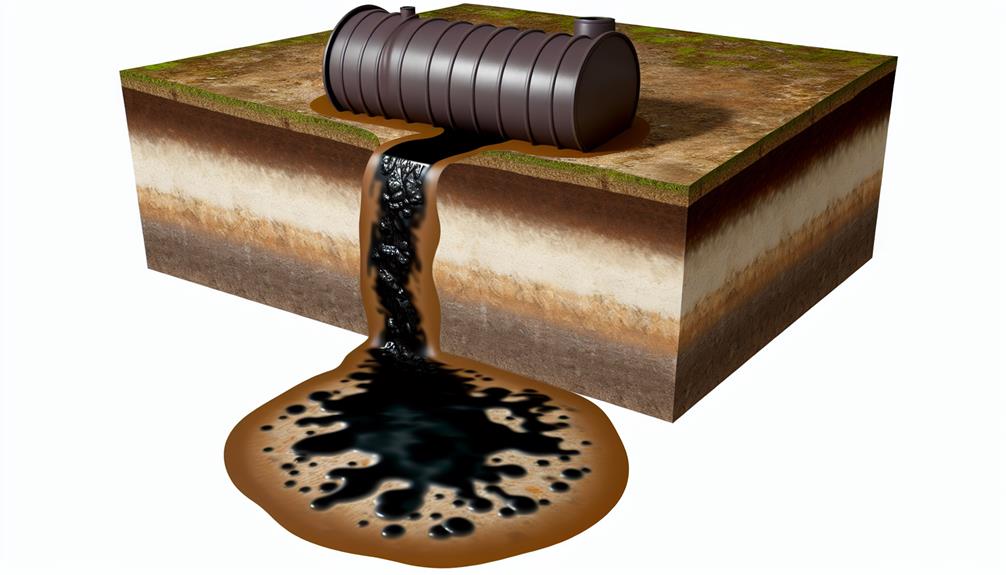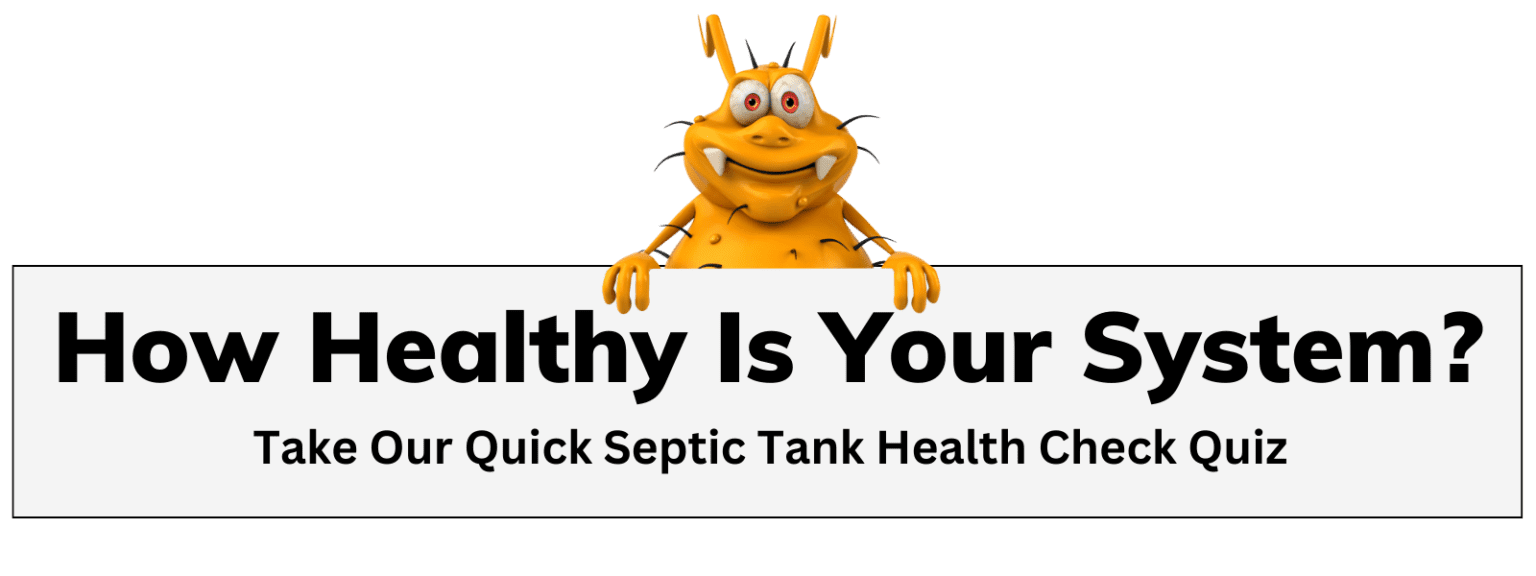Discover how to protect your septic system from breakdown with...
Read MoreYou & Your Septic Tank
Impacts of Neglected Septic Tank Pumping: 4 Tips
Our professional septic service team offers comprehensive septic tank pumping services to keep your system running smoothly. Get a FREE Quote Today.

Impacts of Neglected Septic Tank Pumping: 4 Tips
As the old saying goes, ‘prevention is better than cure.’ This couldn’t be truer when it comes to maintaining your septic tank.
You might not give it much thought, but neglecting to pump your septic tank regularly can lead to a host of problems that could affect not only your property but also your health and the environment.
To save you from the potential havoc, we’re going to share four essential tips.
But first, let’s look at what could happen if you don’t pump your septic tank.
Key Takeaways
- Neglecting regular septic tank pumping can result in groundwater contamination, which can affect the quality of household water supply and lead to waterborne diseases.
- Failure to maintain septic tanks can harm local ecosystems, including flora and fauna, and contribute to algal blooms and ‘dead zones’ in bodies of water.
- Untreated wastewater from neglected septic tanks can pollute surface water, making it toxic to fish and disrupting ecosystems.
- Unattended septic tank pumping can lead to soil degradation, making it unfit for plant growth and disrupting the local ecosystem.
Groundwater Contamination Risks

Neglecting regular septic tank pumping can pose serious risks to groundwater contamination, potentially affecting the quality of your household water supply. The health implications of such negligence can be severe. Groundwater contamination can lead to the proliferation of waterborne diseases, posing serious health risks to you and your family.
Bacterial and viral pathogens can infiltrate your water supply, causing illnesses ranging from mild intestinal discomfort to more severe conditions like hepatitis. Moreover, harmful chemicals leaching into the groundwater can lead to chronic health issues, including kidney damage and cancer. Hence, it’s essential to schedule regular septic tank pumping to mitigate these risks.
Apart from health implications, there are also biodiversity threats associated with neglecting septic tank maintenance. Contaminants can infiltrate local ecosystems, harming flora and fauna. Nutrient overload can cause algal blooms in nearby bodies of water, which can lead to ‘dead zones’ where aquatic life can’t survive.
In short, regular septic tank pumping isn’t just about maintaining your property; it’s a crucial step in preserving your health and protecting local biodiversity. Don’t overlook this key aspect of home maintenance, the consequences can be dire.
Surface Water Pollution Consequences
In addition to the risks posed to groundwater, it’s crucial to consider the substantial impact that failing to pump your septic tank can have on surface water bodies in your vicinity.
Unchecked septic tanks can overflow, releasing untreated wastewater into your surroundings. This wastewater can then infiltrate local streams, rivers, and lakes. The result? Aquatic life endangerment and ecosystem disruption.
| Potential Impact | Consequences |
|---|---|
| Aquatic Life Endangerment | Contaminated water can be toxic to fish and other aquatic species, potentially leading to a decrease in biodiversity. |
| Ecosystem Disruption | Pollutants can harm the delicate balance of an ecosystem, impacting everything from plant life to insects and birds. |
| Water Quality Degradation | Contaminated surface water can also affect the overall quality of the water, making it unsafe for recreational activities like swimming and fishing. |
| Human Health Risks | In extreme cases, contaminated water can pose health risks to humans who come into contact with it, potentially leading to diseases. |
It’s clear that neglecting to pump your septic tank can have far-reaching consequences. Not only does it pose a threat to your immediate environment, but it also risks the health and stability of your local ecosystem. Don’t let this be your legacy. Regular septic tank maintenance is a small task with significant rewards.
Soil and Plant Health Impacts

While the threat to surface water bodies is significant, it’s equally crucial to recognize how failing to maintain your septic tank can negatively impact the health of your soil and plants.
Unattended septic tank pumping can lead to soil degradation and plant toxicity, creating a vicious cycle that harms your environment.
Here are four ways this can happen:
- Soil Contamination: When your septic tank overflows, hazardous waste leaks into the surrounding soil, contaminating it and making it unfit for plant growth.
- Plant Toxicity: The leaked waste results in an excess of harmful substances that can cause plant toxicity. Your plants can absorb these substances, impacting their health and growth.
- Soil Degradation: The leaked waste can alter the soil structure, leading to soil degradation. This makes the soil less fertile, reducing its ability to support plant life.
- Damage to Ecosystem: Ultimately, this cycle of soil degradation and plant toxicity can disrupt the local ecosystem, causing long-term environmental damage.
Diseases From Unmanaged Septic Tanks
Beyond the environmental impacts, you should also be aware that unmanaged septic tanks can become a breeding ground for disease-causing organisms. Health hazards linked to these systems are often overlooked, yet they pose significant threats to humans and animals alike.
Septic odors, for instance, aren’t just unpleasant – they can be harmful if inhaled over an extended period. These odors indicate the presence of harmful gases like methane and hydrogen sulfide, which are produced by decomposing waste. Prolonged exposure can lead to respiratory issues, nausea, headaches, and even unconsciousness in severe cases.
Moreover, neglected septic tanks can leak, contaminating nearby soil and water sources with harmful bacteria and viruses, such as E.coli and Hepatitis A. These pathogens can cause severe gastrointestinal diseases if ingested.
To emphasize, here are some health hazards related to unmanaged septic tanks:
| Health Hazard | Potential Effect |
|---|---|
| Septic Odors | Respiratory issues, nausea, headaches |
| Contaminated Soil | Gastrointestinal diseases |
| Contaminated Water | Hepatitis A, E.coli infection |
| Direct Contact | Skin and eye infections |
Don’t let your septic tank be the source of these health risks. Regular maintenance, including pumping, is key to avoid these dangers.
Conclusion
Ignoring your septic tank can have dire consequences. In the US alone, more than one billion gallons of untreated household wastewater is discharged daily due to faulty septic systems. This causes soil degradation, groundwater contamination, and even diseases.
Don’t become part of this statistic. Regular septic tank pumping is crucial for your health, the environment’s wellbeing, and the longevity of your property. Ensure your septic tank is managed properly to avoid these pitfalls.
You may also like...
Why Are DIY Fixes Essential for Septic Tank Pumping?
Tap into the importance of DIY fixes for septic tank...
Read MoreUnveiling the Average Costs of Septic Tank Pumping
Master the mysteries of septic tank pumping costs and avoid...
Read More
The Best Septic Tank Pumping Services Near You

Answer Some Questions
Let us know about your needs so we can find you the right septic tank pros.

Get Quotes
We will put you in touch with the right septic tank pros for your job and location.

Hire Right
Compare quotes, message or call pros, and hire only when ready.



